Solo podcasts are growing in popularity. All you need is a compelling message and a mic, and you’re good to go. They’re great for experimenting if you’re new to podcasting, or if you want to try out new ideas. But they have some notable downsides as well.
The production process for a solo podcast is very different from co-hosting or interviewing. Whether it’s right for you will depend on the type of listener you want to reach and your overall aim for your podcast. So if you’re considering launching your own solo show, we’ll go through the pros and cons, and some tips and tricks for making a successful one.
Pros of Going Solo
Solo podcasts are a brilliant option for anyone who likes total creative freedom over what they make. They’re also particularly good for building a direct personal connection with your audience. Here are some of the key benefits of the format.
Control Over Content
When going it alone, you have the final say on every decision. From the kind of content you’re uploading, to the tone and feel of the show, it’s all up to you. You’ve got complete creative control over a solo podcast, and the only person you ever need to compromise with is yourself.
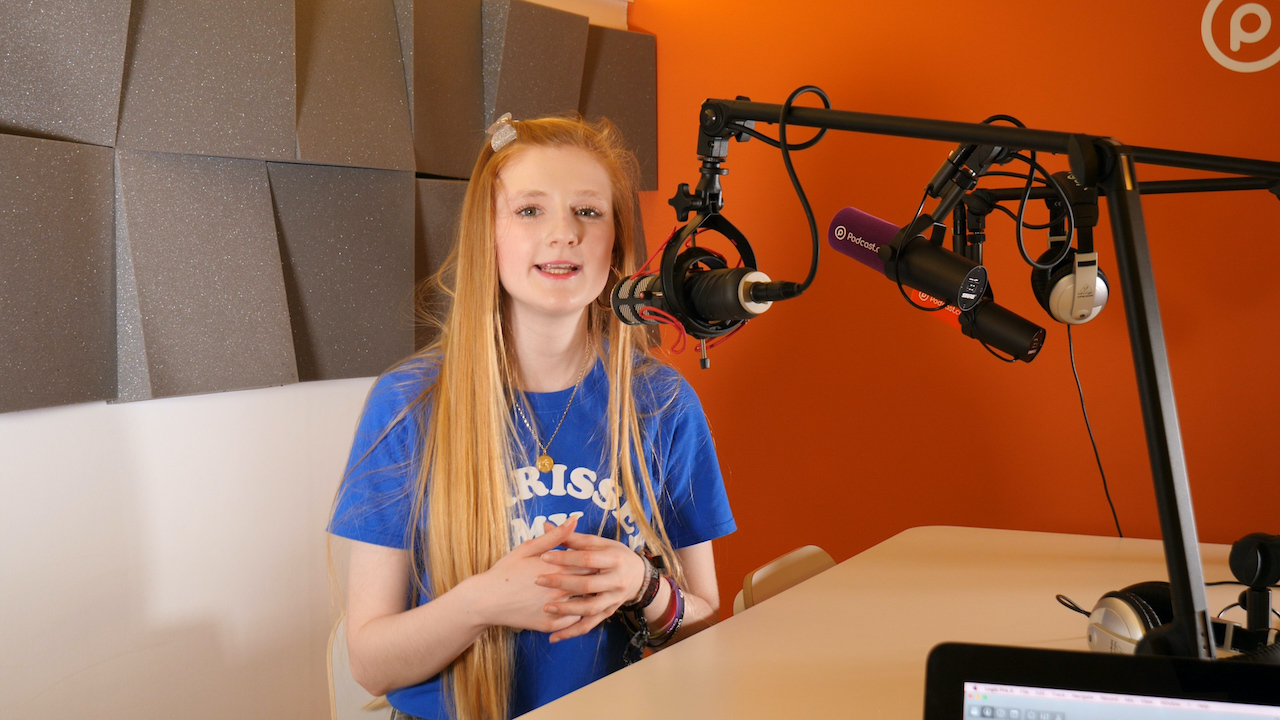
If you’ve got a particular creative vision for the show you want to make, more control might be exactly what you want. There’s no co-hosts to get into arguments with or distract you from your goals, and no time wasted convincing other people your ideas are worth a shot.
It also removes the reliance on guests to supply great content. Because let's face it, podcast guests aren’t created equal. Some will launch into a long-winded self-promotional pitch at the first available opportunity. With a solo podcast it’s up to you to decide what’s likely to be of most interest to your listeners.
Post-Production is Easier
Having only one voice to record makes the entire production process a whole lot easier. All you need is a microphone, some free recording software (we recommend Audacity or GarageBand), and you’re set. You never have to rely on other peoples’ equipment or internet connection to record top-quality audio. Recording an interview remotely lives or dies on the strength of your guest’s mic and wifi. Solo podcasts aren’t as vulnerable to tech problems.
Editing is also easier when it’s only your voice. In a natural conversation, interrupting and talking over one another is pretty common. Cutting all that mess so your podcast sounds clean and easy on the ears can eat up quite a bit of time. But when it’s just you, all you’ve got to edit out is any long pauses or fumbles in your sentences.
Tip: If you really want to speed up your editing process, we’d recommend using Alitu. Simply drag and drop your recordings into the correct slots, add your music, fade it out at the right time, and you’re done.
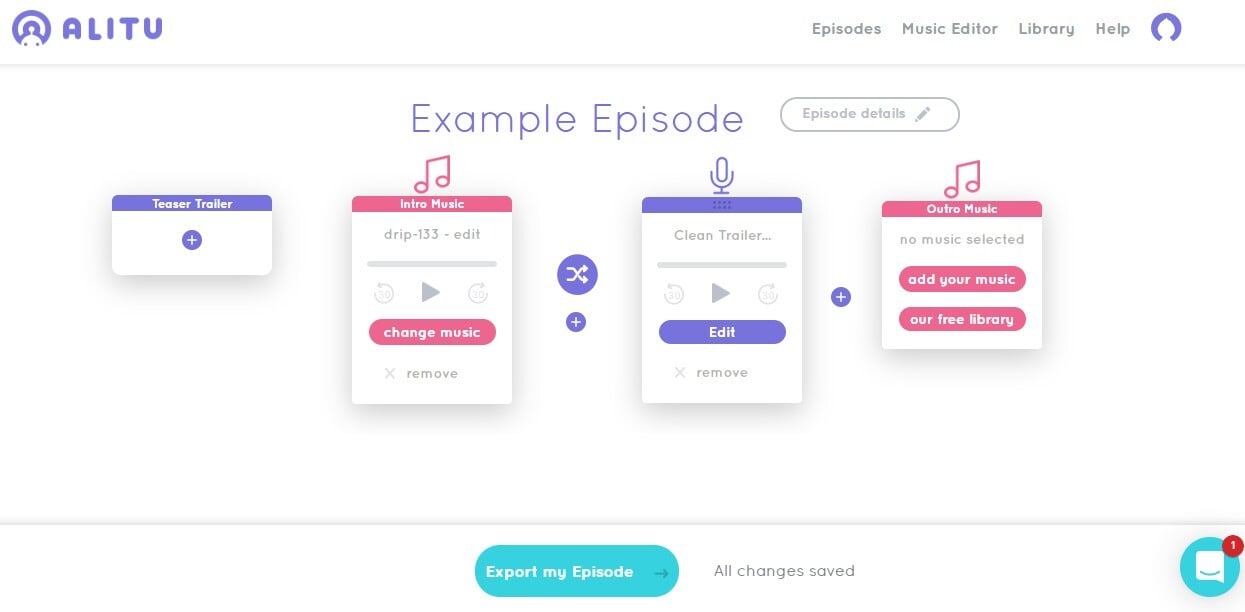
Make Your Own Schedule
Working on your own gives flexibility with working hours you wouldn’t get as part of a team. You can make all your episodes at 3am in your pyjamas, if you fancy. You get to decide how often to put out episodes, and how long you’ll spend on pre and post production.
Connect with Your Audience on a Deeper Level
In a solo podcast, you talk directly to your audience, not guests. For listeners, it’ll feel like you’re addressing them personally. Listening to a voice piped directly inside their head, where it rubs shoulders with their own thoughts, creates a sense of intimacy. You can gain your audience’s trust on a deeper level with a solo podcast, if you do it right.
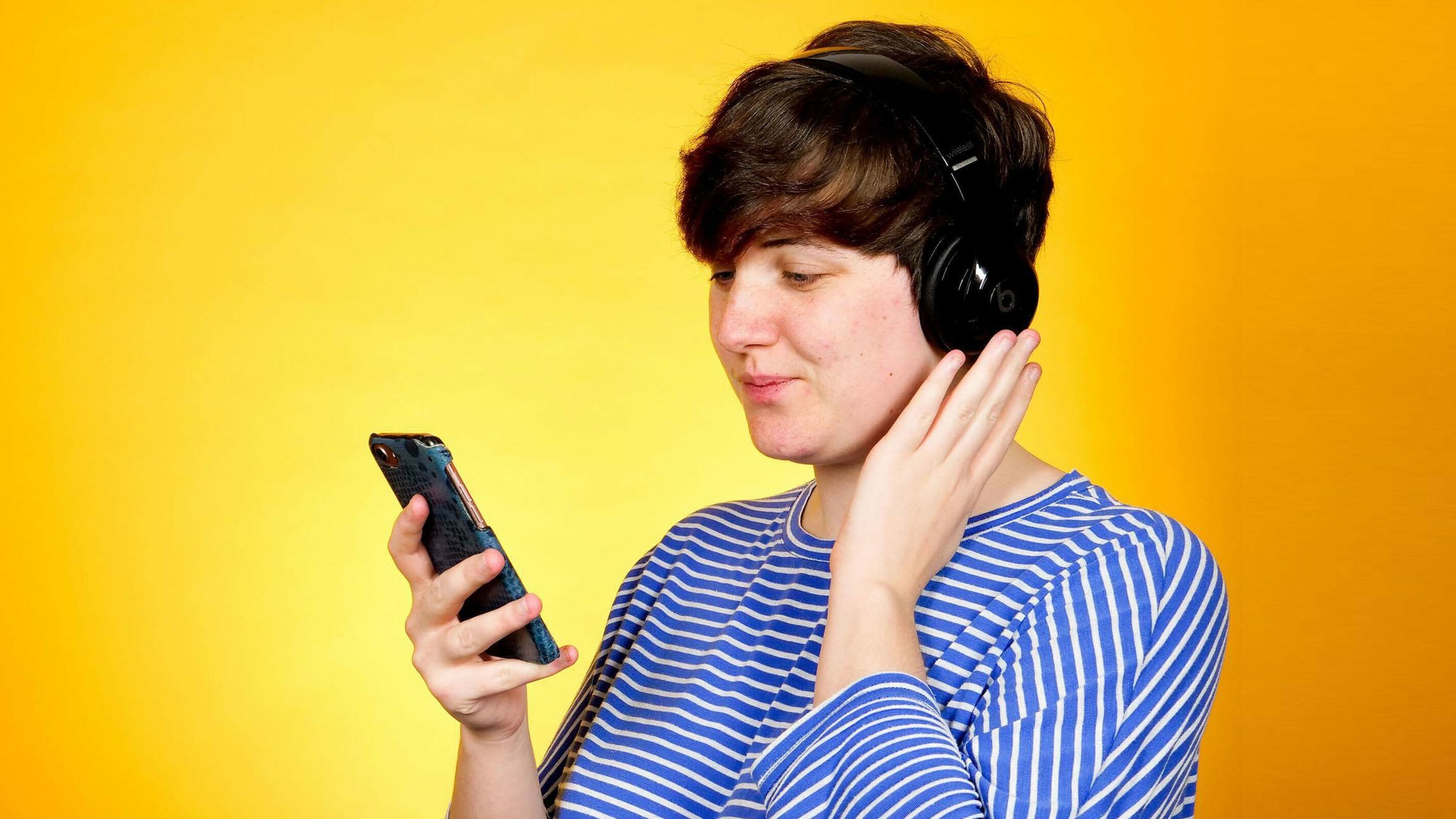
This is great for achieving any of your business or personal goals. Whether you want to convert people into customers, build a community, or put out an important message, getting your listeners emotionally invested in you as being a credible source of information is what you want.
Cons of Going Solo
Doing stuff on your own definitely teaches you a lot, but having guests to speak to and others to work with offers significant advantages.
Workload Can’t be Shared
A trouble shared is a trouble halved. When you’re making a podcast by yourself, all the work is on you. Depending on the kind of person you are, this could make for a pretty stressful and overwhelming time. There’s also no one to cover for you if you can’t record for some reason, like if you’re ill.
You Have to Come Up With All the Ideas
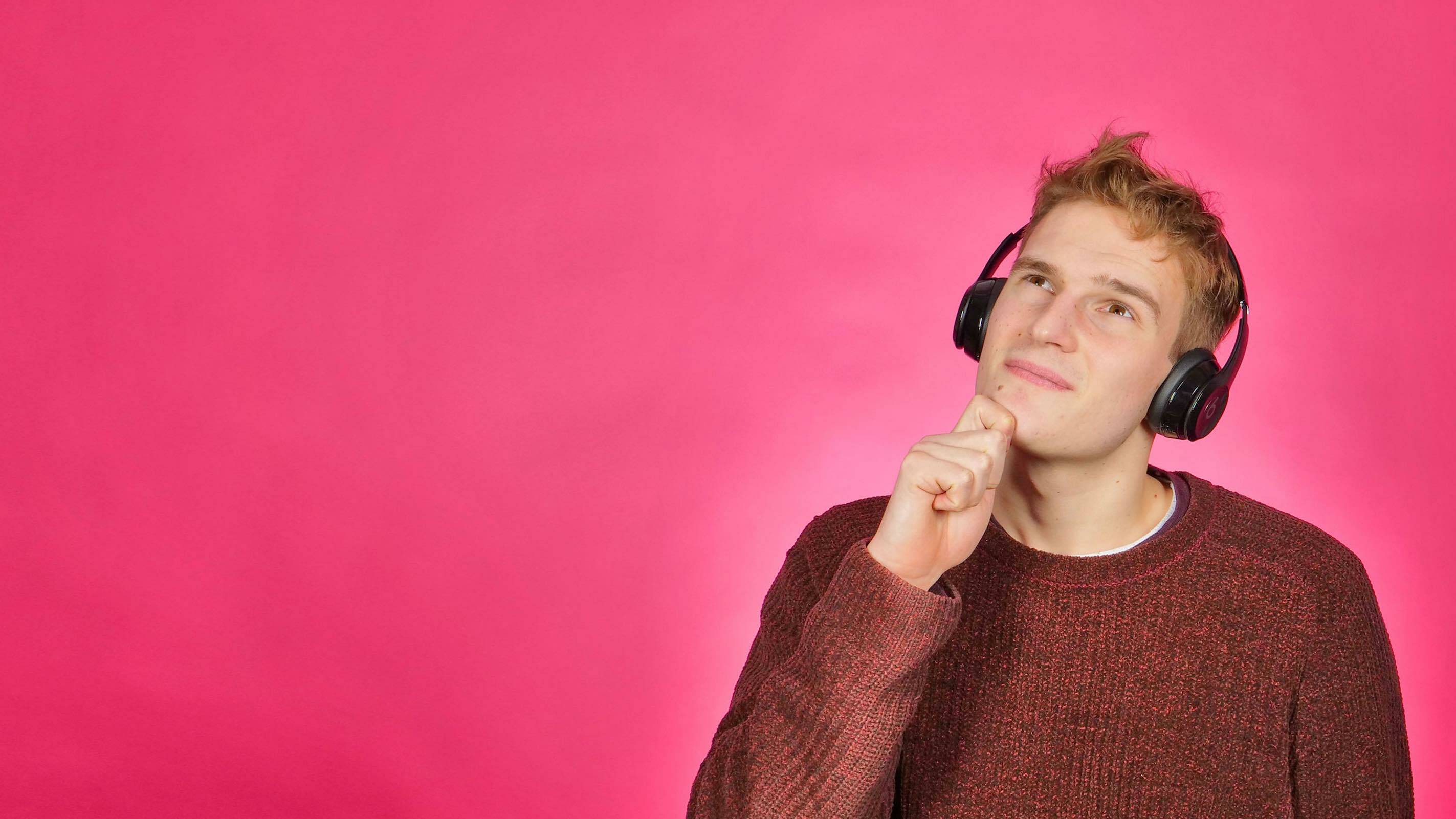
Having complete control over content can be a double-edged sword. You’ve got to come up with all the ideas by yourself. Of course there are places that can help you find inspiration, so it’s not all on you. But having other hosts to bounce ideas off makes brainstorming easier. And when you have guests, all you need to do is ask the right questions and let them supply engaging content. That takes a lot of the pressure off.
It’s Harder to Stay Motivated
If you're prone to procrastination, you'll probably struggle with solo podcasting.
Motivating yourself to create a regular schedule and actually stick to it is harder when you’re the only one to let down. You’ve got to get into the habit of making episodes regularly. This is obviously easier said than done. So if you’re prone to procrastination, solo podcasting might not be right for you.
Delivering an Engaging Monologue is Hard
Keeping up a monologue for a long period of time is a lot harder than it sounds. Having nothing but a mic listening makes it difficult to sound enthusiastic. Even if you really care about your topic, it’s easy to slip into a monotone robot voice. And if that happens, you can be sure you’ll lose some listeners.
Having other people on your podcast gives you the natural responses we’re used to having in everyday conversation. It also takes the pressure off you if you run out of things to say. You can get the hang of talking by yourself though, if you put some practice in. Just don’t expect it to be a doddle as soon as you start.
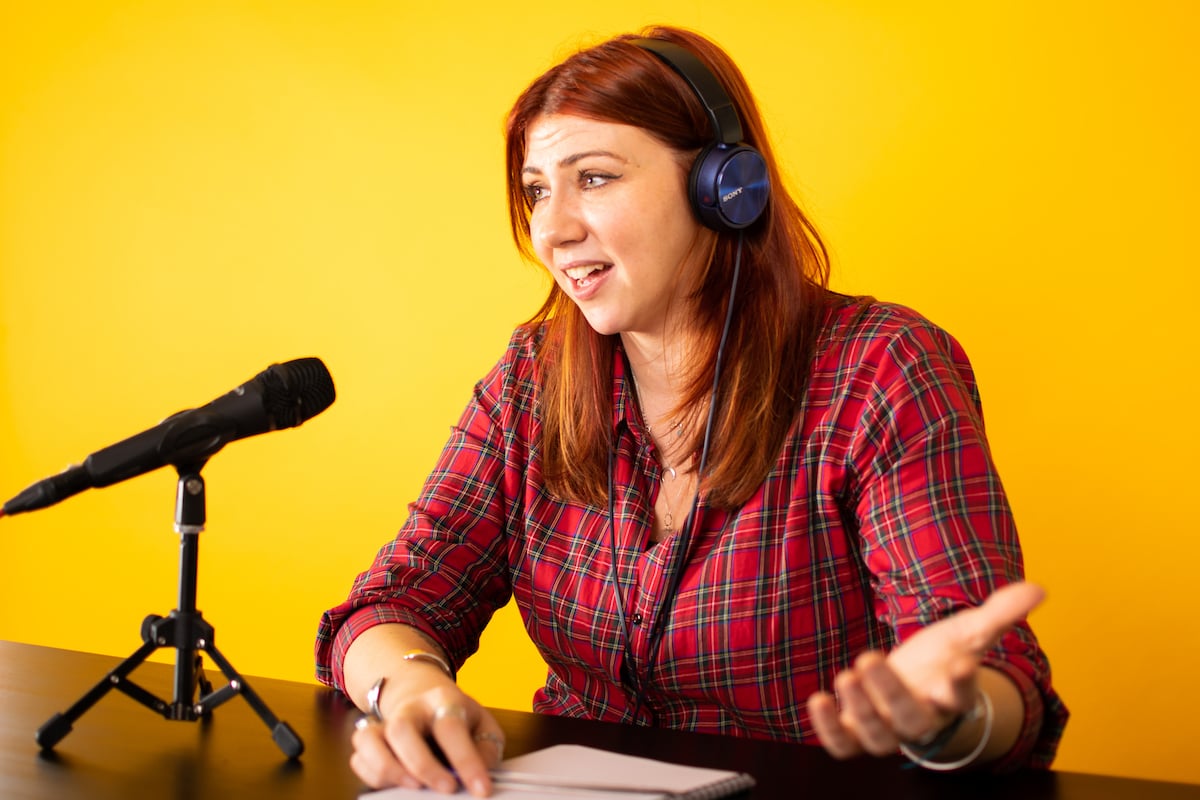
Is Solo Podcasting Right for You?
If you’ve got a clear idea of exactly what you want to say, and you’ve got the relevant expertise and motivation to see it through yourself, a solo podcast could be perfect. They’re brilliant at getting through to people, if you have an important message you want to get out there, or a brand to build.
But if you have less of a clear idea of what you want to do, co-hosts and guest interviews could be a better solution. Likewise if you find it difficult to motivate yourself and manage your own time without any external pressures, solo podcasts might not be for you.
You can always experiment with different kinds of podcast formats. Solo podcasting is probably easier to start out with, as you don’t have to get anyone else on board. So feel free to make a few solo podcast episodes and review them to see how they sound. If you choose to publish them, you can always add more people for interviews or discussions later on.
Tips for Producing a Solo Podcast
Pulling off a solo podcast is harder than it sounds. You might need to get through a few episodes before you feel you really know what you’re doing. But here are some tips to help you get the hang of it quicker.
Talk About Something you Know & Love
Your podcast topic is limited only by what you can think of. From knitting to drugs to relationships, anything is fair game. But we’d recommend choosing something you’re confident on and know enough about to talk at length on. If you don’t know much about your chosen topic, that will become painfully obvious very quickly!

Pick easy topics to begin with while you get used to the solo podcast format. Brainstorm a list of ideas you can use as a starting point. For example, if you were making a solo podcast about Meditation your first few episodes may include:
- What is meditation? (A brief summary)
- Why is meditation worth considering?
- Different types of meditation
- 5 tips for establishing a daily meditation practice
You don’t have to begin with the most advanced or unique ideas ever to make a great show. Anything you can make that’s interesting or useful to your audience is brilliant. Put yourself in the shoes of your listeners and think about what would be of most value to them.
Lastly, make sure you find your chosen topic genuinely interesting. This may sound obvious, but it’s easy to get bogged down in trying to go with whatever seems trendy right now, rather than what you’re into. Sounding excited on a solo podcast is hard enough without having to fake it.
Keep it Short
10 to 15 minutes is an ideal length for a solo podcast
It’s okay if each episode turns out to be quite short. It can be tempting to ramble on, to pad out your show. But even 10 or 15 minutes per episode can be great if it’s useful to your listeners. In fact, for solo podcasts, we highly recommend keeping your episodes short. You can always start with short episodes, and build up your confidence to make longer ones later.
Plan, Plan, Plan
Having a good idea of what you’re going to say before you hit the record button will make things go much smoother. Whether it’s just a rough outline, or a full script to read, planning out your episode structure is a good idea. It’ll stop you from going off track too much, and can help keep your points clear and concise.

If you’re reading out a script, take care you’re not reading like a robot. A monotone voice will send your listeners to sleep. It’ll take some practice to put in all the inflections and tone changes into your voice the way you naturally do in conversation. But it’s worth putting some effort into this, to make your solo podcast engaging.
Imagine Talking to a Friend
When you start speaking, imagine you’ve got a friend in front of you. Or, if you have a willing volunteer, record the first few episodes with them in the room. This will make it easier to learn how to get your voice sounding natural and conversational.
Treating each listener like a friend will help make that connection between you and them. So you should address your audience as such. Try to avoid using phrases like ‘you guys’ or ‘to anyone listening’, as that breaks the spell of talking to the listener directly.
Thinking of them as a friend takes some of the pressure off you too - you don’t have to be perfectly articulate or literary. Some stumbles or ‘ums’ are natural, and they’re completely fine. You wouldn’t worry about them in normal conversation, so they’re okay in a solo podcast. Too many slip-ups makes a podcast difficult to listen to, but one or two will make your podcast sound authentic.
For more tips on how to master your vocal technique behind the mic, check out the video from Podcast.co and Radio.co founder, James Mulvany (the advice applies to podcasting as well as radio!):
Edit Your Audio
You have to work a bit harder to make your voice sound engaging when it’s just you, as there’s less natural variety. So making your podcast editing tight is more important. If you have long pauses or loads of ‘ums’ and ‘ahs’ in your recording, editing them out can make your show sound cleaner.
You can add in more sounds to spice your podcast up. Splice in sound effects and music to create a more immersive show. You can always start off with basic edits and work up to the more advanced ones as you go.
Tip: Make sure you buy a mic to record with! A cheap USB mic will still deliver sound quality that is 10 times better than your phone or internal laptop mic. Good sound quality is becoming more and more important for building an audience.
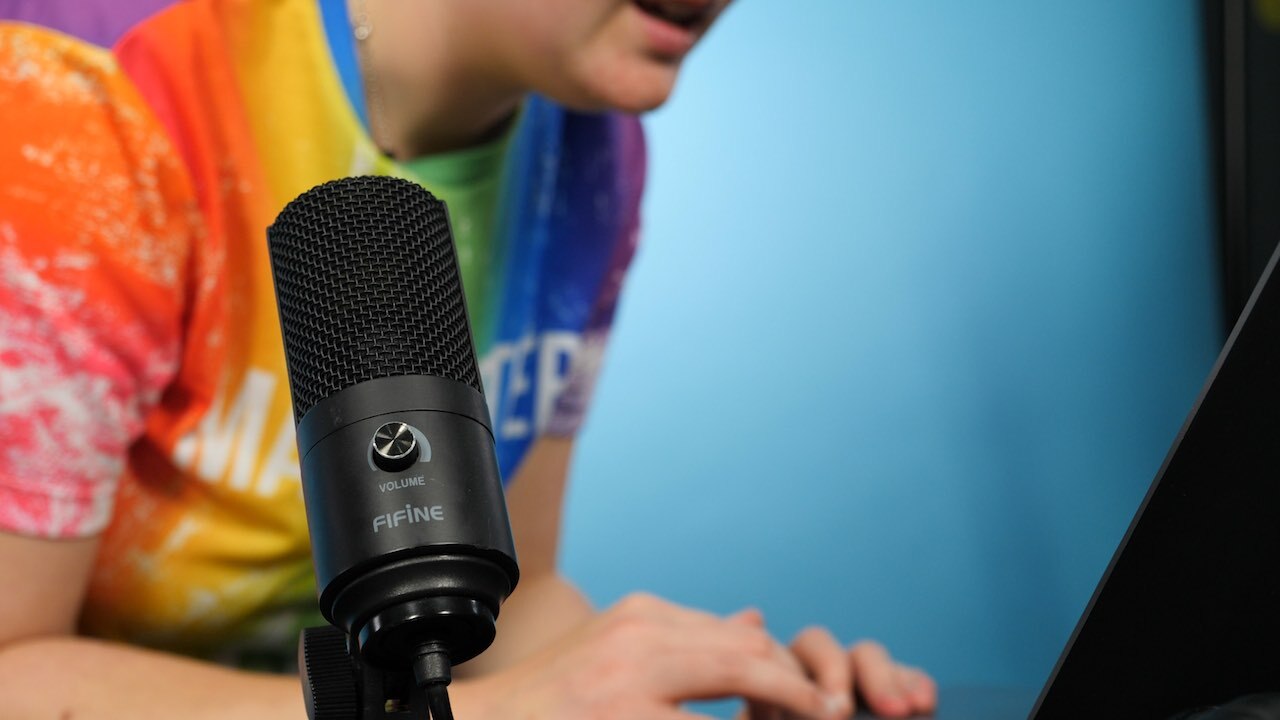
Practice Makes Perfect
Record a few test runs first to get comfortable with the process
You’ve done your brainstorming, you’ve got a plan, and you’ve set up your equipment. Now all that’s left to do is press record and start! It can seem a little strange at first starting a solo podcast, and talking to yourself might seem ridiculous. But stick with it and you’ll get the hang of it. Give yourself a few test runs first to get comfortable.
Speaking when you’re nervous is a lot harder, so do what you can to stay relaxed. But keep in mind you’ll probably get tons better each time you record a new episode. Practice makes perfect after all. So sometimes the best way to make a great solo podcast is to just start, and get better as you go.
Conclusion
There you have it, your complete guide to solo podcasts. There’s pros and cons to going solo. It can be the best way to start out if you’re new to podcasting, and you want to start experimenting. It can also be the most effective way to build up a personal brand, or an intimate connection with an audience.
Starting might seem a bit intimidating, but you’ll soon get the hang of it. Follow all these tips, and you’re already halfway to becoming an expert solo podcaster!
For our full, comprehensive guide on how to start a podcast, click here.







